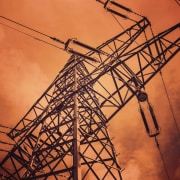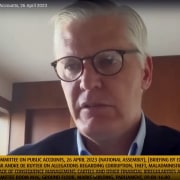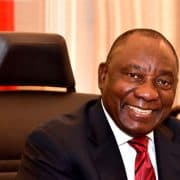|
Getting your Trinity Audio player ready...
|
By Kwazi Dlamini
Lack of accountability is not only a threat to our constitutional democracy, but also to Chapter 9 institutions who are tasked with upholding and strengthening that democracy. A threat to these institutions means that they cannot fulfil their mandate to their full capacity and uphold the rule of law.
The recent threats against Auditor-General South Africa (Agsa) officials during the last round of audits is a more accurate reflection of the state of the country, when it comes to accountability and maintaining the rule of law, than our politicians would have us believe.
It may come as a surprise to many that an institution that enjoys this certain level of power can also be met with threats of violence, but shockingly this is not the first time this has happened in the South Africa. The fact that those who make these threats continue to do so with impunity exposes the lack of accountability and the will to decisively deal with the intimidations that undermine our democracy and look to bring it to its knees.
In 2019, the Public Audit Act was amended to give Agsa broader powers, the ability to investigate deeper than it was able to before, and the power to impose sanctions. Since then, Agsa has encountered a number of threats and violence against its members – one particularly disturbing case was the shooting and attempted murder of an Agsa staff member in Vanderbijlpark, south of Johannesburg. The matter has not been solved.
Criminals have declared full-blown war, not only on those who dare blow the whistle against corruption, but now also against some government officials, including those from Agsa. This is an attempt to keep the taps of corruption running and evade accountability, and any citizen of good standing must reject and condemn these attempts.
The criminals who have the determination to threaten officials do so because more often than not, they enjoy certain levels of political protection. Civil society, media and law enforcement must condemn these heinous acts and work together to expose and prosecute those whom impunity in corruption has emboldened to violently threaten Chapter 9 officials.
In this dangerous environment, it is important that Chapter 9 institutions can also count on the support of the very same political leadership that took oaths to defend democracy and the Constitution. Political leadership must vehemently condemn these threats and provide the necessary support to Agsa and other officials so they can continue to serve the country with distinction. More important, they must act against those who make the threats, and ensure that appropriate consequences are dished out.
Why condemn the fight against criminality?
A few weeks ago, Minister of Mineral Resources and Energy Gwede Mantashe publicly slated former Eskom CEO Andre de Ruyter and labelled him as someone who was acting like a policeman instead of a CEO. De Ruyter has now resigned after just under three years of battling the effects of decades of neglect on the once-efficient power utility – hailed in 2001 as the world’s best power company by no less than the Financial Times.
Amid continuous load shedding that has kept the country in the dark for years, Mantashe accused De Ruyter himself of sabotage – conveniently forgetting that the blame for Eskom’s woes must fall squarely on the shoulders of the government. His attack on De Ruyter is inexplicable – unless it is because the former CEO persistently pursued corruption and the criminals who, years ago, invaded Eskom and bled the power utility dry. As for the energy ministry, it has never made the slightest attempt to do the same.
I cannot argue for De Ruyter’s competence in running Eskom but I found it shocking and disappointing that a sitting minister would condemn the fight against criminality, especially at Eskom which has struggled with criminal syndicates running rampant and causing the power utility to fail to deliver on its mandate. Instead, it survives on bailouts, footed by taxpayers, from the state. And other state-owned entities (SOEs) are in the same situation.
It is exactly this kind of mentality that makes these syndicates brazen enough to threaten public servants who fight against corruption.
It is this level of impunity and lack of accountability that has led to the dilapidation of Eskom and other SOEs like Prasa, Denel, and Transnet.
Mere condemnation is not enough to halt the decline. Our government must walk the talk – and it does a lot of talking. Much more needs to be done to ensure that Chapter 9 institutions and SOEs are able to conduct their work and carry out their functions without fear or favour – or neglect.








